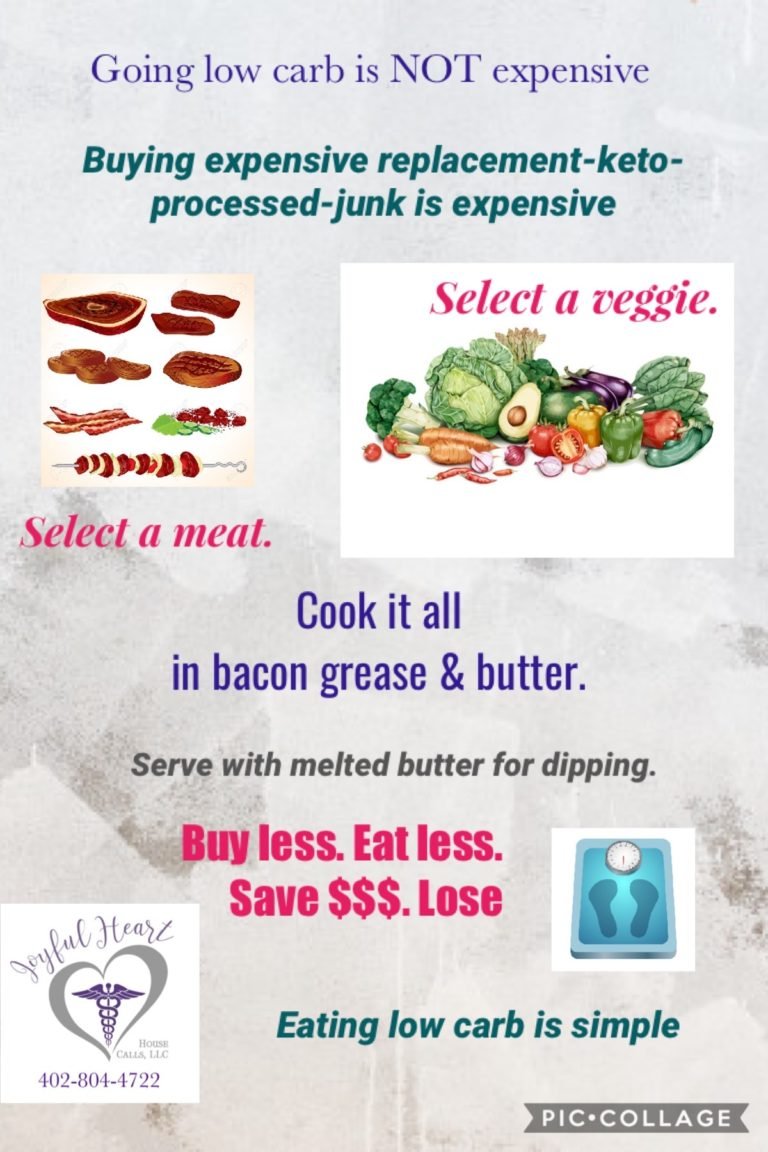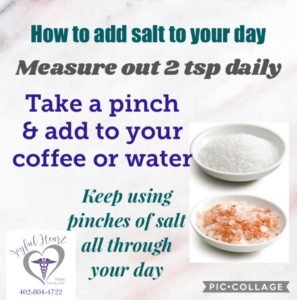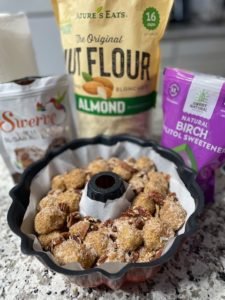Welcome to my blog about getting healthier, using a grain-free, sugar-free, healthy fat eating plan. While many people do go “all-out” keto, many people are able to just eliminate grains and sugars to take steps to better health. It is a VERY individual choice and is based on specific health needs. The more metabolic dysfunction that exists, the lower the carb count needed to reign in the chemical chaos within.
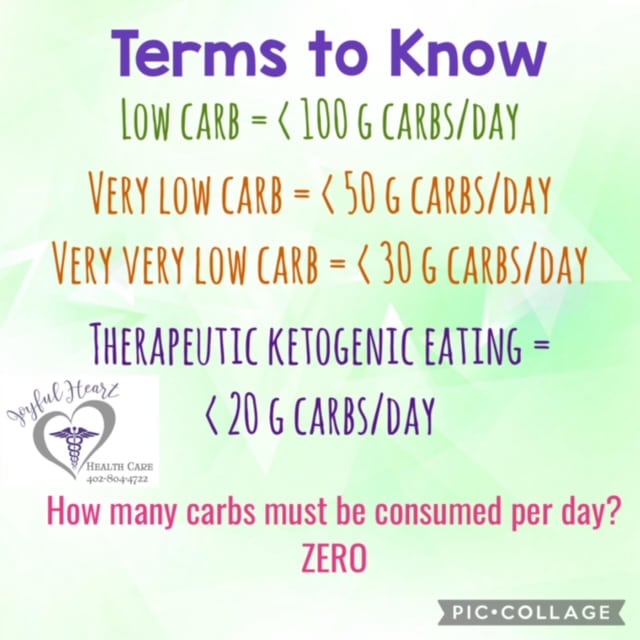
When people first begin cutting carbs, I discourage any counting of anything; don’t count calories. Don’t count macros. Don’t count proteins. Don’t count fats. Don’t really even count carbs – just begin cutting the grains & sugars out. After a couple weeks of this new method of eating, you can THEN, take a look at carb counts and decide where your daily intake should be. There is no perfect number or standard rule; and we don’t count calories EVER. Check out Zoe’s pursuit of the definition of calorie: https://www.zoeharcombe.com/2014/06/the-calorie-theory-prove-it-or-lose-it/
In addition, never let an app or keto program calculate your macros FOR you. Even if it’s one of the “good ones”, programs and apps always recommend very HIGH protein and carbs, and pretty LOW fat – those are totally unacceptable for a true low carb eating plan. We want just enough protein to support the body’s IDEAL body weight (NOT your current weight) and enough fats to feel satisfied for hours at a time. One of the main goals of our method utilizes fat for energy instead of carbs, allowing us to go longer and longer between meals. We must overcome the 2 hour carb cycle that has created the body’s symptoms of diabetes, weight gain, and insulin resistance. Also note that fats ALSO provide cellular structure for cell division/replication, and thus is the main reason fats are classified as essential to our diets. The body cannot make cellular fat; we must consume it. Once overweight, we can teach the body to release some fat from storage; this is how we lose weight.

We have to unlearn and completely rethink what we thought we knew about sugars, carbs, and fats; it took me 4-6 months to completely accept that I’d been brainwashed about nutrition my WHOLE life. So I DO understand the hesitancy to jump in with both feet!! LOL
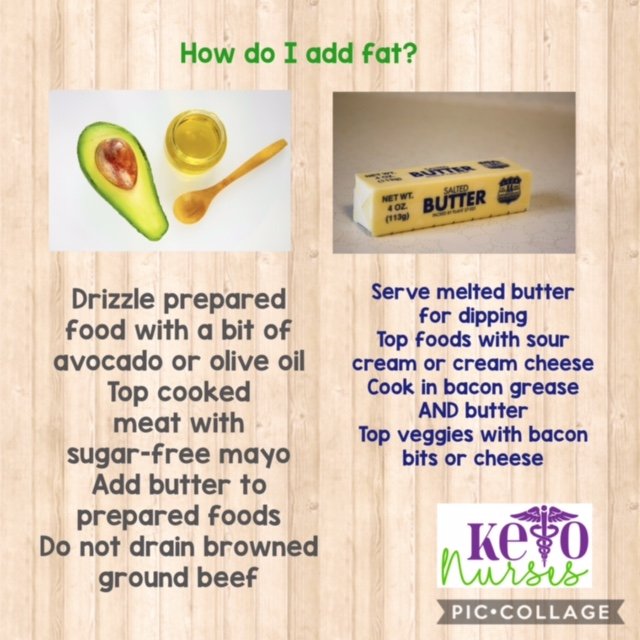
Do be really aware of food labels; the manufacturing industry is catching on to the lingo that catches our eye. Companies will use “keto” or “low carb” or ‘grain-free” on the fronts of labels, but upon further investigation, you will often find that to be inaccurate.
I usually recommend keeping things really simple for the first 2-3 months. Eat foods as close to their natural state as possible; think about eating from the farm, instead of a box or can.
We have bacon and eggs almost every morning; sometimes, it’s sausage or ham. Once in a while, we will make KetoNurses Biscuits and Gravy, or even Low Carb Yum’s pancakes. However, during the first 2-3 months of low carbing, it’s not advised to try these substitutes for breads and such; these items have a really different flavor AND texture – and many find them totally unpalatable. This disappointment often leads to folks deciding that they cannot eat this way, giving up way too early to really know.

The recommendation is to keep meals simple and real. Allow your palate to change to less sweet desires. Given time, your tastes and food desires WILL change and you’ll be surprised at how sweet veggies taste. When first beginning a low carb way of life, you will probably continue to eat 3 meals a day. But after a few weeks, you should begin to notice that you aren’t all that hungry at lunchtime, when you’ve had a good protein and fat for breakfast. That is when you need to WAIT to eat lunch, until your stomach actually growls. Ideally, we want to go about 5-6 hours between daytime meals and about 13-14 hours from supper to breakfast, overnight. Giving time for your liver to process your meal is optimal for reducing liver stress and for allowing the liver some rest time between meals.
Keep in mind that our goal is to change lifestyle habits that are forever. A time-specific diet is NOT beneficial under any circumstances because the “end” of the diet brings back bad habits. Our real goal is to make permanent changes both in our minds and our actions, that impact our health for the rest of our lives. If you’re afraid of making certain changes right off the bat, then don’t. Start changing things you ARE wiling to change. Every week or 2, review your changes and how they’re impacting your health, making additional changes as needed.
Learning to eat completley differently than we’ve been taught form the past 40-50 years is quite challenging. Give yourself some grace, and don’t beat yourself up too bad. The more you learn, the better your choices, and that turns into a healthier YOU!!

